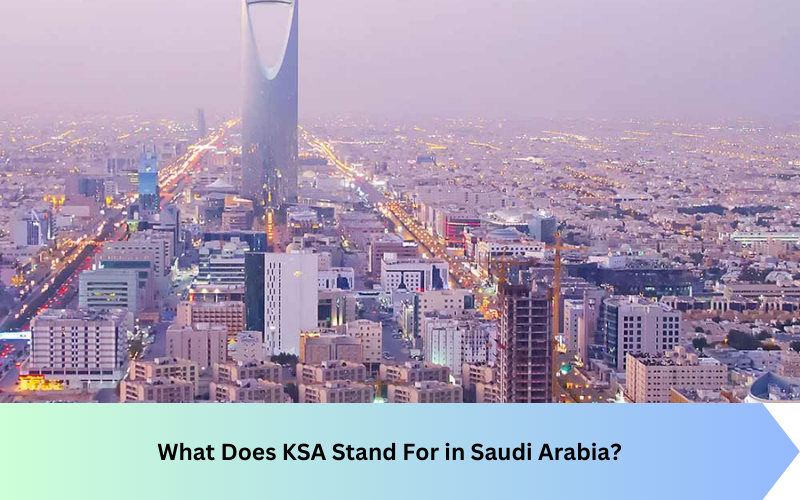KSA is a usually used acronym that stands for the Kingdom of Saudi Arabia. This abbreviation is widely diagnosed each in the usa and internationally, signifying one of the maximum influential nations in the Middle East. Understanding the significance of KSA involves delving into the ancient, cultural, and socio-political context of Saudi Arabia. This article explores what KSA represents, its ancient evolution, and its current-day implications.
Historical Background of KSA
The Formation of the Kingdom
The history of Saudi Arabia, and for this reason KSA, dates back to the early 18th century with the establishment of the primary Saudi state in 1744. This became marked by using a percent between Muhammad ibn Saud, the founding father of the Saudi dynasty, and the Islamic reformer Muhammad ibn Abd al-Wahhab. Their alliance laid the groundwork for a spiritual and political union that would ultimately form the area’s destiny.
The cutting-edge Kingdom of Saudi Arabia was founded an awful lot later, in 1932, by using Abdulaziz Ibn Saud. He unified the disparate tribal territories of the Arabian Peninsula thru a series of conquests and international relations. The assertion of the Kingdom marked the fruits of Ibn Saud’s efforts to consolidate strength and establish a centralized kingdom.
The Significance of “Kingdom” in KSA
The term “Kingdom” in KSA underscores the monarchical shape of presidency that Saudi Arabia has maintained since its inception. Unlike many other nations that have transitioned to republican or different sorts of governance, Saudi Arabia has remained a hereditary monarchy. The king serves as each the pinnacle of country and authorities, wielding sizeable affect over country wide and global affairs.
Cultural Identity and KSA
Religious Foundations
The “Kingdom” in KSA is also reflective of its deep-rooted Islamic identification. Saudi Arabia is domestic to the two holiest towns in Islam, Mecca and Medina, which imbue the country with enormous religious authority. The nation’s criminal and social structures are heavily prompted by means of Islamic concepts, specifically the ones derived from the Quran and the Hadith.
Saudi Arabia’s spiritual identity is in addition emphasised by using its function because the custodian of the two holy mosques. This responsibility not simplest enhances its popularity within the Muslim world but also shapes its national regulations and international members of the family. The annual pilgrimage of Hajj, one of the Five Pillars of Islam, sees thousands and thousands of Muslims from around the sector visiting to Saudi Arabia, reinforcing its spiritual and cultural significance.
Saudi Arabia’s religious identification is further emphasised with the aid of its position because the custodian of the 2 holy mosques. This duty not handiest complements its reputation in the Muslim global but also shapes its country wide guidelines and global relations. The annual pilgrimage of Hajj, one of the Five Pillars of Islam, sees hundreds of thousands of Muslims from round the arena touring to Saudi Arabia, reinforcing its religious and cultural importance.
Cultural Heritage
KSA also embodies the wealthy cultural historical past of the Arabian Peninsula. The nation boasts a completely unique combination of Bedouin traditions, Islamic customs, and contemporary affects. Festivals, conventional tune, dance, and cuisine mirror the numerous cultural landscape of Saudi Arabia. The maintenance of cultural background is a priority, with tasks geared toward promoting traditional crafts, folklore, and historic sites.
Socio-Political Landscape of KSA
Governance and Political Structure
Saudi Arabia’s governance is characterised by way of its absolute monarchy. The king holds sizable powers, together with the capability to rent ministers, enact laws, and oversee the judiciary. The present day king, Salman bin Abdulaziz Al Saud, maintains to uphold the traditions and regulations established with the aid of his predecessors while navigating the demanding situations of a swiftly changing global.
The political shape of Saudi Arabia additionally includes the Consultative Assembly, referred to as the Shura Council, which advises the king on various subjects. Although the council does not have legislative strength, it plays a vital role in shaping country wide policies and offering a platform for dialogue on key problems.
Vision 2030
In recent years, KSA has emerge as synonymous with Vision 2030, an formidable reform plan released by means of Crown Prince Mohammed bin Salman. This initiative goals to diversify the dominion’s economy, reduce its dependence on oil, and rework diverse sectors, including healthcare, training, and tourism. Vision 2030 represents a large shift in the socio-economic panorama of Saudi Arabia, promoting innovation, entrepreneurship, and cultural openness.
The plan additionally emphasizes the empowerment of women, with good sized strides made in increasing woman participation inside the personnel and expanding their rights. These reforms reflect a broader vision for modernizing Saudi society at the same time as retaining its cultural and spiritual identity.
Economic Significance of KSA
Oil and Energy Sector
KSA is globally diagnosed for its great oil reserves and its pivotal position inside the electricity sector. The discovery of oil in 1938 converted Saudi Arabia from a in large part agrarian society into one of the international’s main oil producers. The nation-owned organisation, Saudi Aramco, is the biggest oil manufacturer globally, contributing drastically to the kingdom’s GDP.
The wealth generated from oil exports has fueled fast development and modernization, allowing sizeable investments in infrastructure, healthcare, and training. However, fluctuating oil costs and global efforts to transition to renewable strength resources have highlighted the want for financial diversification, as mentioned in Vision 2030.
Economic Diversification
Diversifying the financial system is a center goal of KSA’s Vision 2030. Efforts are underway to increase non-oil sectors including tourism, enjoyment, and generation. The Neom mission, a futuristic megacity, exemplifies Saudi Arabia’s dedication to innovation and sustainable development. By attracting overseas funding and fostering a enterprise-pleasant surroundings, KSA pursuits to put itself as a worldwide hub for alternate and enterprise.
International Relations and KSA
Regional Influence
KSA’s strategic location and financial prowess make it a key participant in the Middle East. The country exerts good sized impact in nearby politics, regularly gambling a leading function in businesses together with the Gulf Cooperation Council (GCC) and the Organization of Islamic Cooperation (OIC). Saudi Arabia’s foreign policy is fashioned through its pastimes in retaining local stability, countering extremism, and fostering financial cooperation.
Global Partnerships
On the worldwide stage, KSA keeps robust ties with foremost powers, such as the USA, China, and European international locations. These relationships are built on mutual hobbies, specially in power, protection, and monetary improvement. Saudi Arabia’s participation in global companies, such as the United Nations and the G20, in addition underscores its dedication to global cooperation and diplomacy.
Conclusion
KSA, the Kingdom of Saudi Arabia, represents a great deal more than a geographical entity. It embodies a rich historic legacy, a completely unique cultural identification, and a dynamic socio-political panorama. From its origins as a unified state to its cutting-edge-day ambitions below Vision 2030, Saudi Arabia continues to navigate the complexities of subculture and modernity. The acronym KSA indicates a state at the crossroads of alternate, striving to balance its history with its aspirations for the future. Understanding what KSA stands for offers a deeper perception into the heart of Saudi Arabia and its position within the present day world.





